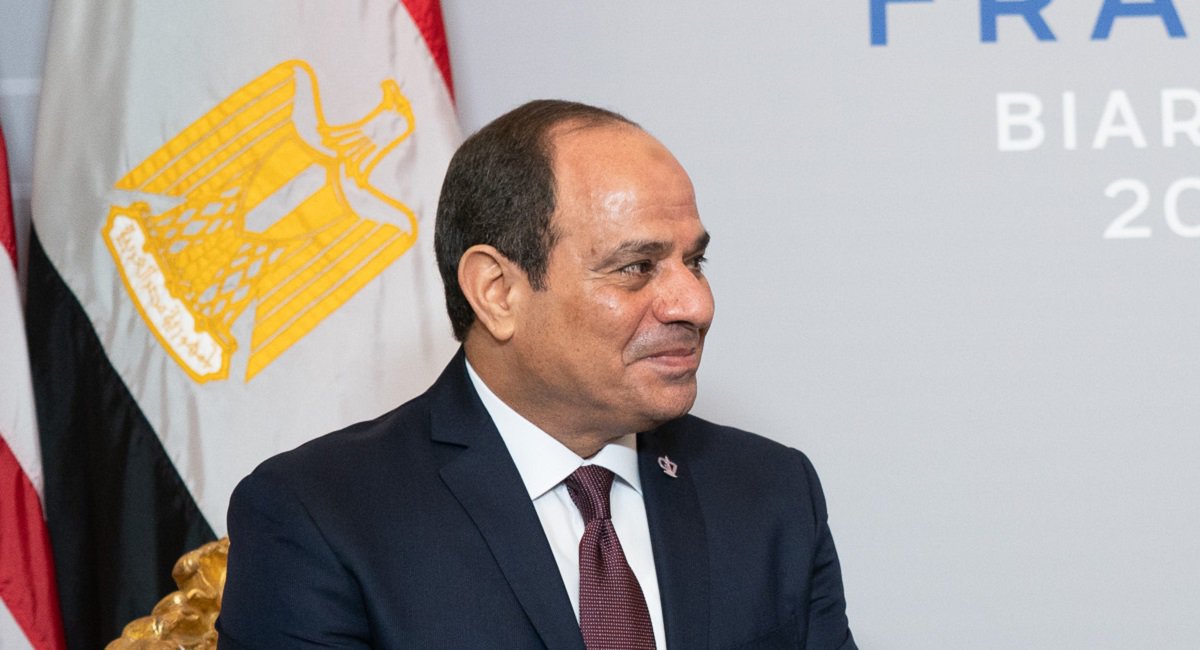

Photo by The White House (Public Domain)
A new essay collection highlights the negative consequences of the Egyptian military’s heavy involvement in the economy: stunted economic growth, a new ruling class of military officers, and little incentive to enact much-needed reforms.
A new essay collection from the Carnegie Middle East Center outlines the involvement of the Egyptian Armed Forces (EAF) in the economy. This involvement has given rise to a new version of Egyptian state capitalism. Driven by Arab socialism in the 1960s, and by privatization in the 1990s, under President Abdel-Fattah el-Sisi the state has sought to bend the private sector to its capital investment strategy while continuing to profess official commitment to a free market economy. The military claims to employ 5 million people, but virtually all are in fact employed by private subcontractors delivering publicly-funded projects managed by military agencies. Sisi’s approach may help generate economic growth and improve the efficiency of public finances, but it also reinforces the grip of the Egyptian state rather than consolidating free markets.
A Blunt Spearhead
This approach is reckless and shortsighted. Government intervention in many economic sectors is so widespread that it virtually determines output, even though these sectors formally are in the hands of private decisionmakers. The net value of military businesses and production of goods and services is far smaller than many portray, but it is considerably greater than it was a decade ago. To make matters worse, Sisi’s approach does not reflect an integrated strategy, but rather a determination to generate capital using the concentrated power of the state, spearheaded by the military.
A main danger of this approach is subordinating the private sector. The state is the sole investor in public infrastructure and the source of a large share of the private sector’s turnover, especially for large and medium enterprises. The massive surge in public housing and infrastructure spending since late 2013 has amplified the centrality of political connections and nepotism, and poor enforcement of contracts and concerns over the military’s tax advantages have discouraged foreign companies from investing in Egypt. The Sisi administration seeks private sector investment, but exclusively on its own terms, perceiving the generation of income and the provision of commodities for select constituencies to be of overriding political importance.
The Sisi administration has also tried to shift part of the burden of its approach onto private investors. The government has considerably reduced spending on energy and food subsidies and public sector wages, and Parliament has approved the sale of state-owned companies with losses exceeding half their capital. The public debt-to-GDP ratio rose to 90.3 percent by June 2019 and foreign debt to $112.7 billion by December. Concerns about the viability of state-led infrastructure projects prompted the pull out of major Emirati firms, suspension of a $3 billion Chinese loan, and the failure of talks over a $20 billion Chinese investment. The military and presidency have had to coax and even coerce some of the country’s best known private real estate developers into investing in the new, $58-billion-dollar capital east of Cairo.
Worrisome Implications
Foreign direct investment in Egypt is “sluggish” and declining as a result of this new version of Egyptian state capitalism. There is some potential for Egypt to move gradually, fitfully, and even inadvertently toward less state control over the economy, but as the new Carnegie essay collection outlines, this will not be an easy road. The first essay outlines Egypt’s new version of state capitalism, with military-led real estate development, private sector encroachment, and using private investment to recapitalize the public sector. Then, Bessma Momani describes how the military’s involvement in the economy has contributed to underperformance in development, and Shana Marshall shows how a new ruling class of military officers is on the rise. George Abed demonstrates how Egypt’s completion of an IMF program in 2016 was superficial, and Ishac Diwan suggests why armed forces in power and in business are hard-pressed to implement the reforms needed to stimulate growth.
Nothing that Sisi has done alters what the IMF 2019 report on Egypt described as “long-standing problems of weak governance, rent seeking, vulnerabilities to corruption, and the heavy presence of the state in the economy.” Without a fundamental break in this structuring of economic access and opportunity, Sisi and any successors in the presidency will remain perpetually vulnerable to competitive rent seeking between the state agencies his power depends on.
Yezid Sayigh is senior fellow at the Carnegie Middle East Center and director of the program on Civil-Military Relations in Arab States. He is the author of “Owners of the Republic: An Anatomy of Egypt’s Military Economy



